I am very happy to announce my new course with ADVAYA Rewilding Mythology. Featuring my dream pantheon of teachers, including ecologists, philosophers, anthropologists, writers, song collectors, dreamworkers, community organizers, and many more, the course is an eight-week journey into the worlds of lichen, fungi, rainforests, and songbirds. We will reroot, rewild, and retell.
Myths are like air: invisible until you realize you live inside of them and thrive or die according to their limitations. When we hear the word myth we think of heroes and battles. But patriarchy is also a myth - as is heteronormativity and capitalism and human supremacy. Civilization is a myth. And it is within these imperceptible yet encompassing narrative structures that we now find ourselves stuck like flies in a spider’s web.
But myth, when it is consciously created, can be a powerful way of coming back into dialogue with the rubble ecologies within which we find ourselves negotiating climate change and social upheaval. We cannot return to the folk traditions of our distant ancestors. But we can reclaim myth as a way of rooting back into a resilient multi-species network of beings with more feral suggestions on how to dismantle “the master’s house”.
___
For most of human history, myth was a durable mode of knowledge transmission, kept alive and resilient by the breath-laced web of communal storytelling. Practical information about survival and sustenance was nested within compelling narratives that prized the epic stories of multi-species communities over the monologues of human individuals. Just as we plant a seed in soil, so were vital pieces of agricultural and ecological lore planted into stories that were built to survive environmental and social collapse. Mythtelling, as primarily oral and embodied, was revitalized by the same ecological cycles that depend on a balance of decay and regrowth: breaking down dead wood to generate new soil. Our culture-creating cosmogonies rarely grew stale because they were refreshed and adapted to new conditions each time they were retold. Most importantly, they were contextual. Just as mycorrhizal fungi map the relationships in a forest, so do myths map the specific relationships of a community rooted in place. A myth designed to transmit information about harvesting nuts in one location cannot be transplanted to another ecosystem unchanged and still provide reliable ecological information. Myths were the maps of communities intimately dialoguing with their environment. But the rise of empire depended on the deracination of mythologies. Just as landscapes were stolen and terraformed so were whole pantheons uprooted from their social and ecological contexts, coopted by the very cultures that ensured the demise of their originating cultures. Galilean magicians were turned into militaristic figureheads. Serpentine divinities were transformed into gorgon-headed monsters. Uprooted from their context and from the renewing respiration of communal storytelling, these stories ossified into abstraction and reinforced the anthropocentric hyper-individuality and colonial capitalism of today.
How can we reroot these myths in their original environments to recover the ecological wisdom they were built to transmit? How can we understand that science and mythtelling stem from a similar impulse to cultivate understanding and intimacy with the natural world? Rejecting the antiseptic impulse of the dominant culture’s bent on exterminating alternative epistemologies, let us compost our favorite myths, folklore, and narratives with ecology, science, somatics, and poetry. Hijacking the tools of material reductionism for our feral creations, we can glimpse into the inner worlds of lichen, fungi, rainforests, and songbirds, understanding that the most important stories right now are always more-than-human. Finally, let us retell cultural myths and personal stories knowing that, like an ark, they may carry our most precious relationships and seeds of practical wisdom, through the floodwaters and tectonic shifts of tomorrow.
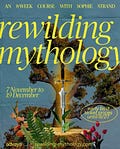



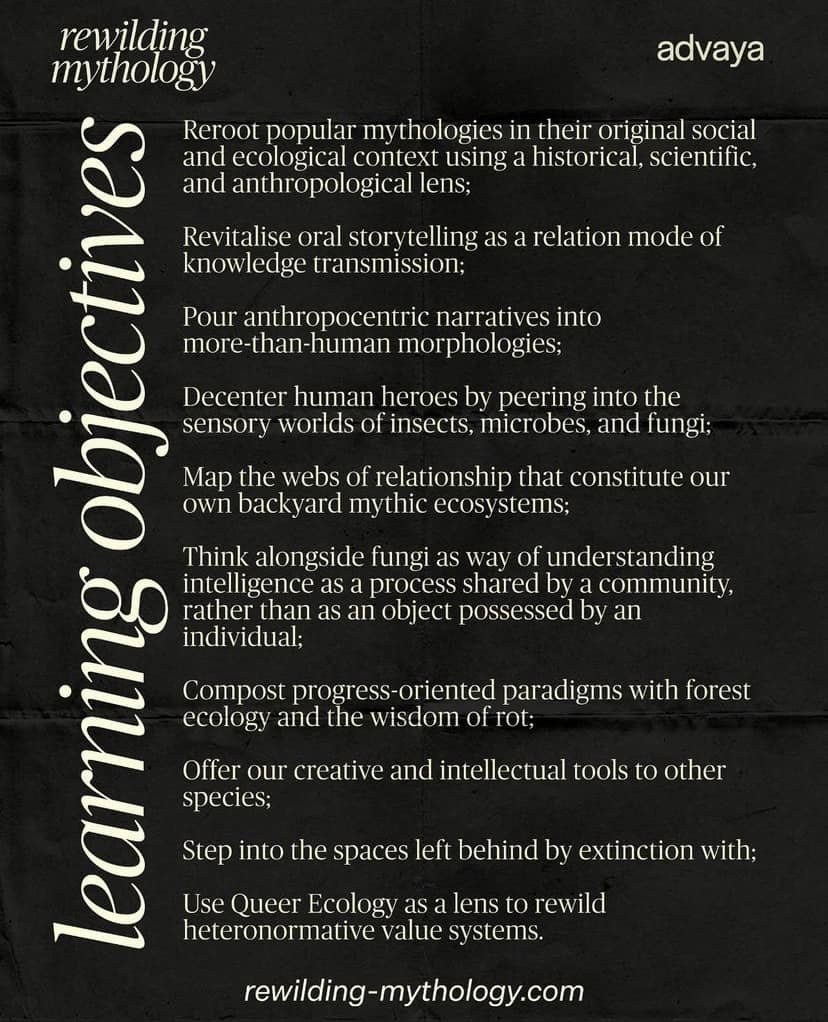
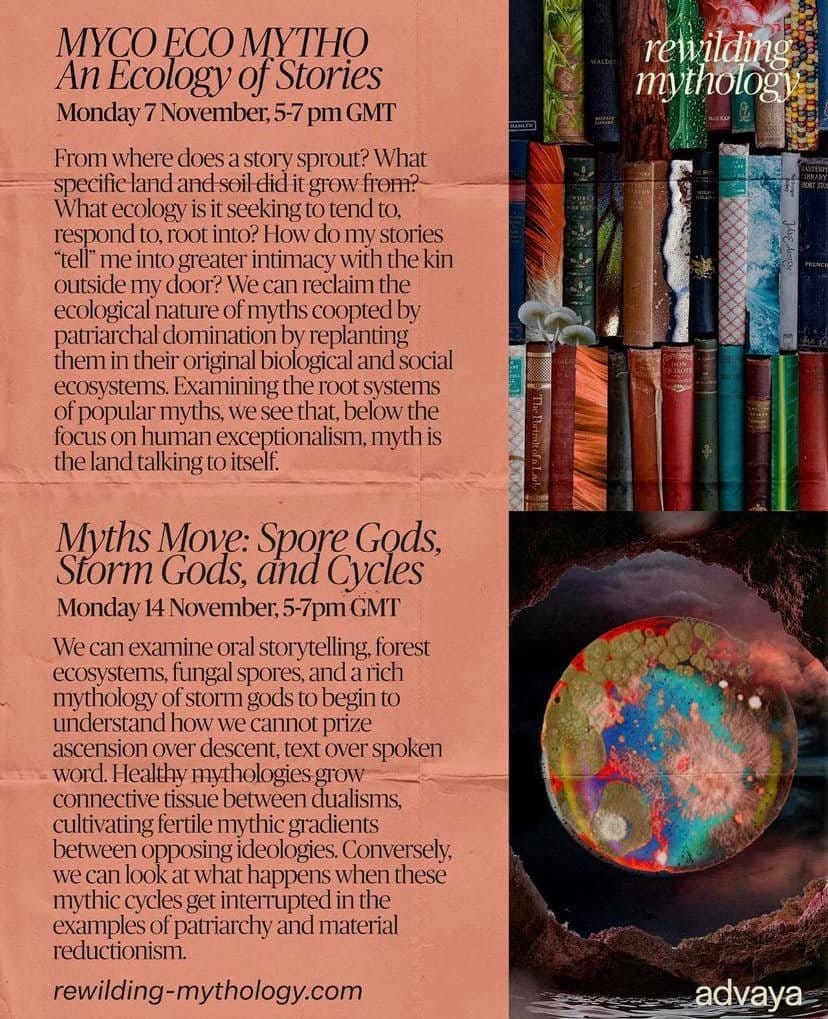
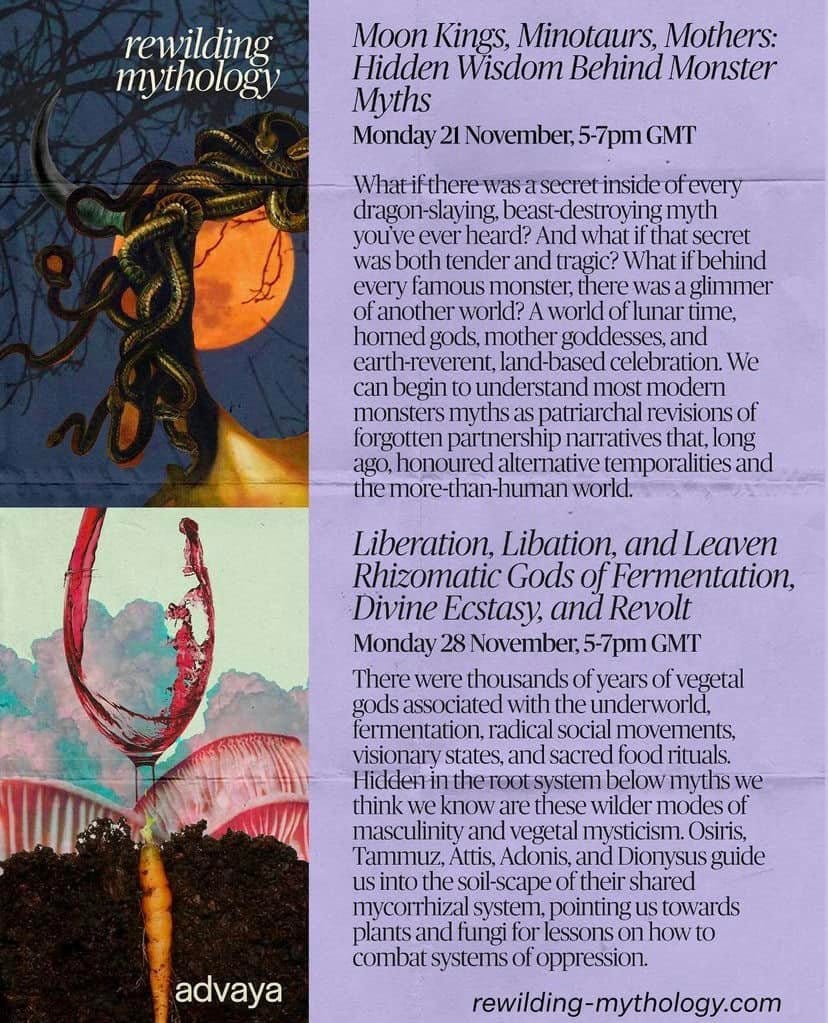
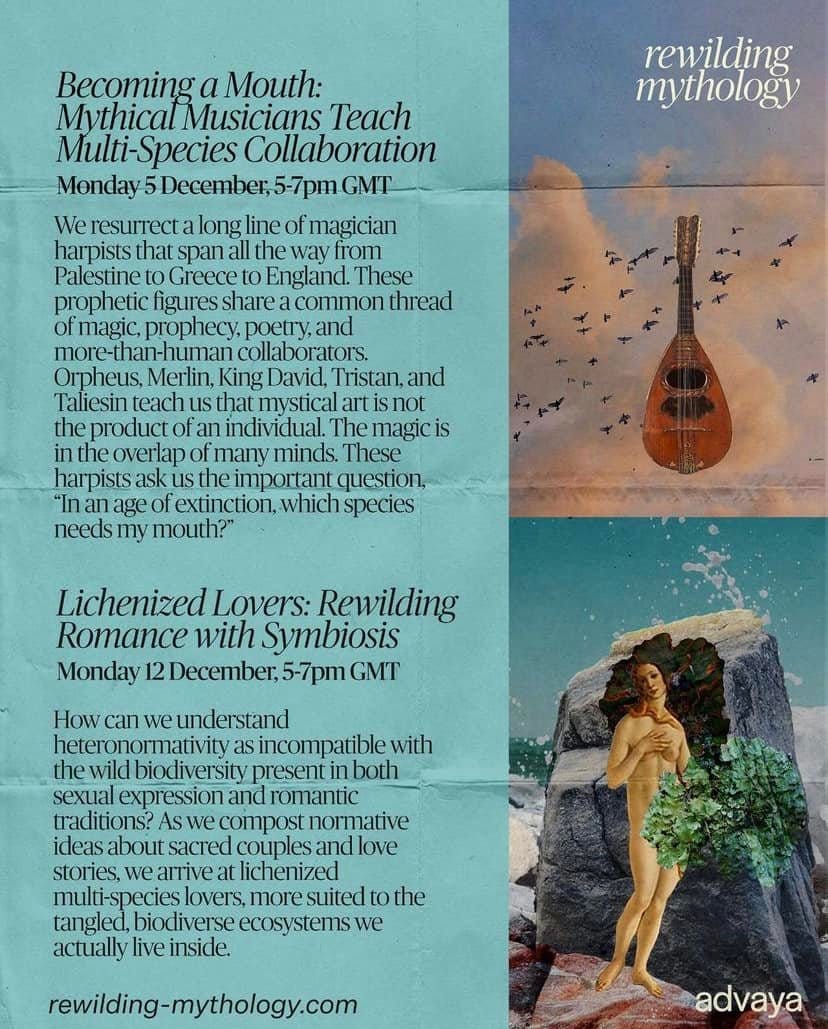
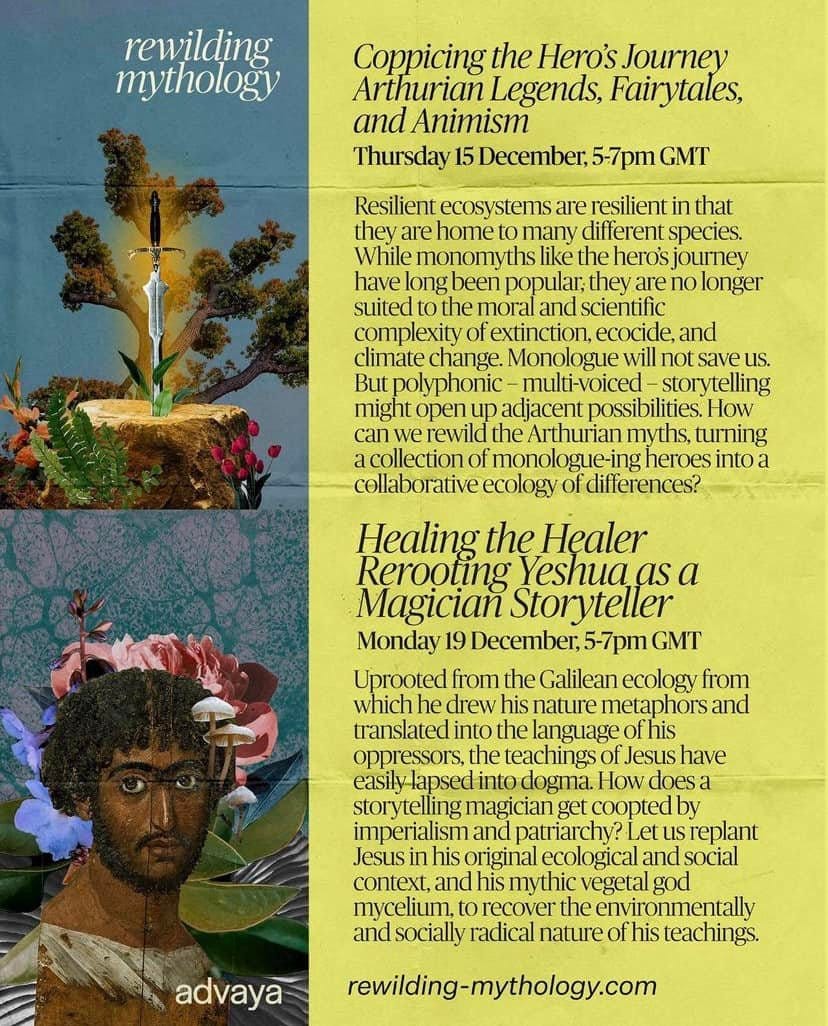
I’m really looking forward to this course....
I just finished listening to your chat with Bayo💕✨💕...the whole reframing of the DSM and autistic children gave me chills...absolutely beautiful✨
Myths are like air. This paragraph resonates with me. Also the ig poem, The Lack.